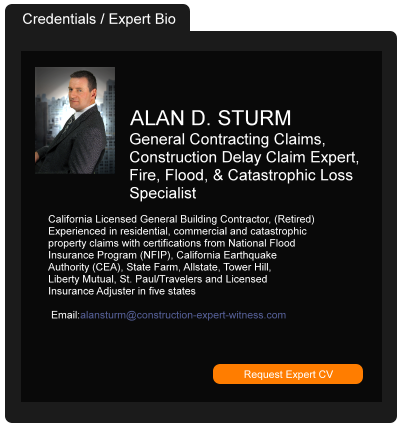Federal Arbitration Act Preempts Pennsylvania Payment Act
June 15, 2020 —
Wally Zimolong - Supplemental ConditionsI am back. It feels like an entirety since I last posted. But a hellacious trial schedule got me off the blogosphere for some time. Plus, there was nothing to write about.
But I am back with a bang thanks to a decision from the Eastern District of Pennsylvania concerning the interplay of a forum selection clause appearing in an arbitration clause in a construction contract and the Pennsylvania Contractor and Subcontractor Payment Act. In Bauguess Electrical Services, Inc. v. Hospitality Builders, Inc., the federal court (Judge Joyner) ruled that the federal arbitration act preempted the Payment Act’s prohibition on forum selection clauses and held that an arbitration must proceed in South Dakota even though the construction project were the work was performed was located in Pennsylvania.
The Payment Act applies to all commercial construction projects performed in Pennsylvania. As some you might know, Section 514 of the Payment Act, 73 P.S. 514, prohibits choice of law and forum selection clauses. It states “[m]aking a contract subject to the laws of another state or requiring that any litigation, arbitration or other dispute resolution process on the contract occur in another state, shall be unenforceable.” Therefore, if a construction contract is for a project located in Pennsylvania, Pennsylvania law must apply and all disputes must be adjudicated in Pennsylvania.
Read the court decisionRead the full story...Reprinted courtesy of
Wally Zimolong, Zimolong LLCMr. Zimolong may be contacted at
wally@zimolonglaw.com
How Pennsylvania’s Supreme Court Decision Affects Coverage of Faulty Workmanship Claims
March 31, 2014 —
Beverley BevenFlorez-CDJ STAFFDarin J. McMullen of the firm Anderson Kill explained how a recent opinion by the Pennsylvania Supreme Court allows “Pennsylvania policyholders” to “more confidently challenge insurance companies’ denials of faulty workmanship claims.”
The decision in Indalex Inc. v. National Union Fire Ins. Co. of Pittsburgh, PA, 2013 Pa. Super 311 (Dec. 3, 2013) “reverses a nearly decade-long trend of Pennsylvania decisions narrowing the scope of insurance coverage for construction and defect-related claims under commercial general liability insurance policies,” according to McMullen. “Equally important, the Indalex ruling dealt a blow to the insurance industry’s continual efforts to win overbroad expansion of the rulings in Kvaerner Metals Div. of Kvaerner U.S., Inc. v. Commercial Union Ins. Co., Millers Capital Ins. Co. v. Gambone Bros. Dev. Co., and Erie Ins. Exchange v. Abbott Furnace Co., which found that claims of faulty workmanship in some circumstances may not constitute coverage-triggering ‘occurrences.’”
Read the court decisionRead the full story...Reprinted courtesy of
Industry News: New Partner at Burdman Law Group
March 30, 2016 —
Burdman Law GroupBurdman Law Group, a boutique civil litigation law firm with offices in California, Nevada, and Arizona, is pleased to announce that
Pieter M. O’Leary, was named a Partner in January 2016.
Mr. O’Leary is an experienced litigator who has represented individuals and businesses in both state and federal court in actions involving breach of contract, negligence, construction, fraud, product defect, and business torts.
Read the court decisionRead the full story...Reprinted courtesy of
Mississippi River Spends 40 Days At Flood Stage, Mayors Push for Infrastructure Funding
June 18, 2019 —
Jeff Yoders - Engineering News-RecordAs record flooding continues across the Midwest, the region’s mayors and the Army Corps of Engineers are looking for solutions to mitigate future floods.
Read the court decisionRead the full story...Reprinted courtesy of
Jeff Yoders, ENRMr. Yoders may be contacted at
yodersj@enr.com
Washington Supreme Court Interprets Ensuing Loss Exception in All-Risk Property Insurance Policy
May 20, 2024 —
David G. Jordan & William E. Phillips IV - Saxe Doernberger & Vita, P.C.The "ensuing loss" clause is a provision that restores coverage for property insurance claims that are subject to certain policy exclusions, such as “faulty workmanship” and “faulty design.” It applies in cases where there is damage from a covered cause of loss that ensues, or results from, the excluded cause of loss. Courts across jurisdictions have grappled with interpreting the breadth of this clause, leading to varying conclusions regarding its scope and applicability. One of the primary challenges in interpreting “ensuing loss” lies in determining the ultimate cause of damage. Courts must ascertain whether the ensuing loss is sufficiently distinct from the excluded event to warrant coverage under the policy. This analysis often hinges on whether the cause of loss is thought to constitute a separate and independent occurrence or is merely a continuation or exacerbation of the excluded event.
Reprinted courtesy of
David G. Jordan, Saxe Doernberger & Vita, P.C. and
William E. Phillips IV, Saxe Doernberger & Vita, P.C.
Mr. Jordan may be contacted at DJordan@sdvlaw.com
Mr. Phillips may be contacted at WPhillips@sdvlaw.com
Read the court decisionRead the full story...Reprinted courtesy of
Freight Train Carrying Hot Asphalt, Molten Sulfur Plunges Into Yellowstone River as Bridge Fails
July 10, 2023 —
Associated Press - Engineering News-RecordAssociated Press
COLUMBUS, Mont. (AP) — A bridge that crosses the Yellowstone River in Montana collapsed early Saturday, plunging portions of a freight train carrying hazardous materials into the rushing water below.
Reprinted courtesy of
The Associated Press, Engineering News-Record
Read the full story... Read the court decisionRead the full story...Reprinted courtesy of
Hunton Insurance Team Wins Summary Judgment on Firm’s Own Hurricane Harvey Business Income Loss
March 23, 2020 —
Michael S. Levine & Michelle M. Spatz - Hunton Insurance Recovery BlogA Texas judge has ruled that Hunton Andrews Kurth is entitled to coverage from Great Northern Insurance Co., a unit of Chubb, Ltd. (“Chubb”), for losses its predecessor firm suffered when Hurricane Harvey closed its Houston office and disrupted business in 2017.
The court agreed with Hunton’s position that the policy, written specifically for a law firm, covered its business income loss until the firm’s operations were restored to their pre-loss levels. The court rejected in its entirety Chubb’s argument that coverage lasted only until the physical damage that closed the building had been repaired. Rather, siding with Hunton, the court found that the policy language affords, in addition to ordinary business income coverage during the damage period, “extended period” coverage that commences after the damaged property is repaired and after the firm’s operations resume.
From August 27 to August 31, 2017, the firm was forced to close its Houston office due to flooding and damage caused by Hurricane Harvey. While employees were permitted to return to the office on August 31, income did not return to its pre-loss level until September 14, 2017. The firm submitted a claim to Chubb for the loss sustained from August 27 to September 14, but Chubb paid only for income loss suffered during the 3-day closure period, and refused to cover the loss suffered after the building reopened.
Reprinted courtesy of
Michael S. Levine, Hunton Andrews Kurth and
Michelle M. Spatz, Hunton Andrews Kurth
Mr. Levine may be contacted at mlevine@HuntonAK.com
Ms. Spatz may be contacted at mspatz@HuntonAK.com
Read the court decisionRead the full story...Reprinted courtesy of
Florida District Court Finds That “Unrelated” Design Errors Sufficient to Trigger “Related Claims” Provision in Architects & Engineers Policy
March 02, 2020 —
Jason Taylor - Traub LiebermanMost professional liability polices include some form of a “related claims” provision that generally provides where two or more claims or wrongful acts are causally or logically related, they will be deemed to constitute a single claim. Importantly, these provisions typically provide that those “claims” are then deemed to have been “first made” at the time the first claim or act was committed for purposes of the policy’s claims-made and reporting requirements. Understandably, these provisions provide insurers and insureds with some clarity over the number and timing of claims that could involve multiple errors or omissions, and potentially aggregate all related claims or acts into a single policy period. While reasonable in principle, application of such provisions, especially involving large scale design and construction projects, is not always so easy.
Nova Southeastern University, Inc. v. Continental Cas. Co., 18-cv-61842 (S.D. Fla. Dec. 27, 2019), involved such an insurance coverage dispute with a design project gone wrong. DeRose Design Consultants, Inc. (“DeRose”) was hired as a structural engineer to design “ice tanks” to store and chill water for an energy efficient air conditioning facility constructed on the campus of Nova Southeastern University (“NSU”). An early water test on one of the tanks determined the walls of the ice tank deflected, leaked, and cracked when the tank was filled with water. DeRose later discovered that the problems with the ice tank were caused by a structural design error.
The first errors were discovered in early 2009, and reported under DeRose’s professional liability policy with Evanston. DeRose then created a remedial design to repair the tanks, which involved strengthening repairs. Additional leaking and an early indication of corrosion involving the Remedial Design arose as early as October 25, 2009. Several field investigation reports were prepared in 2011 and 2012 confirming these issues with the Remedial Design. A third report in February 2012, however, identified a new error involving the concrete slab under the ice tanks also designed by DeRose. The third report concluded that the concreate slab was overstressed and could not handle the loads of the ice tanks. The report also concluded, however, that the design defects in the concrete slab were “unrelated” to the original design defect of the ice tank walls or Remedial Design.
Read the court decisionRead the full story...Reprinted courtesy of
Jason Taylor, Traub LiebermanMr. Taylor may be contacted at
jtaylor@tlsslaw.com


































































